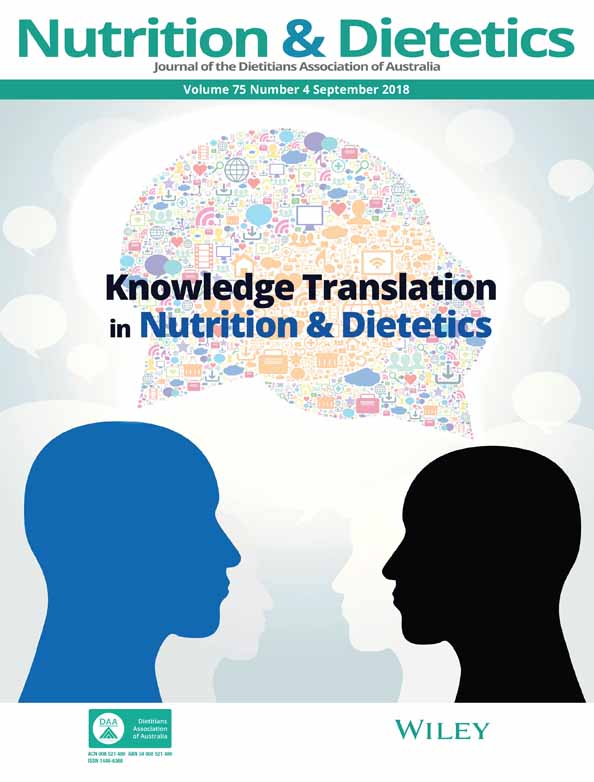Engaging food service providers to change food service practices in aged care facilities
L. Matwiejczyk, Dip. Nutr Diet, AdvAPD, Lecturer, Dietitian
R. Roberts, B. Nutr Diet APD, Associate Researcher
O. Farrer, BSc Hons Diet, APD, Lecturer
G. O'Dea, B. Nutr Diet, APD, Dietetic Student, Dietitian
G. Bevan, B. Nutr Diet, APD, Dietetic Student
L. Nairn, MSc. Nutr Diet, APD, Dietetic Student, Dietitian
M. Miller, PhD, AdvAPD, Dean
Abstract
Aim
The present study describes the impact of a novel education program for food service staff from Australian aged care facilities (ACF) to facilitate improvements in food service practices. The purpose was to explore; (i) the impact of the intervention (ii) barriers and facilitators of the program from food service providers’ perspectives and (iii) make program planning and practice recommendations.
Methods
Participants completed pre- and post-program questionnaires, attended two focus groups on program process and impact and 4 months later reported through individual interviews on changes they had implemented. Results were triangulated between the questionnaires, focus groups and interviews and impacts and outcomes identified through directed content analysis.
Results
Thirty senior-level chefs and a cook participated from 27 ACF from Victoria, Australia. Participation impacted on the menu, dining experiences and food service practices. All of the participants were enacting changes in their workplace 4 months later as change agents. A focus on skilling the participants as ‘change agents’, brokering ongoing peer-support and the celebrity and/or expert status of the facilitators were attributed to the success of the intervention.
Conclusions
This novel intervention empowered Victorian food service providers to make positive changes in ACF. Further research is required to measure if these self-reported changes are sustainable and relevant to other facilities and to establish the effect on food experience, satisfaction and well-being of residents.
Conflict of interest
The authors wish to acknowledge the collaboration with the not-for-profit Maggie Beer Foundation (MBF), particularly the philanthropist Maggie Beer, who engaged Flinders University to evaluate their national educational program. The MBF team developed and delivered the ‘Creating an Appetite for Life’ programs.




